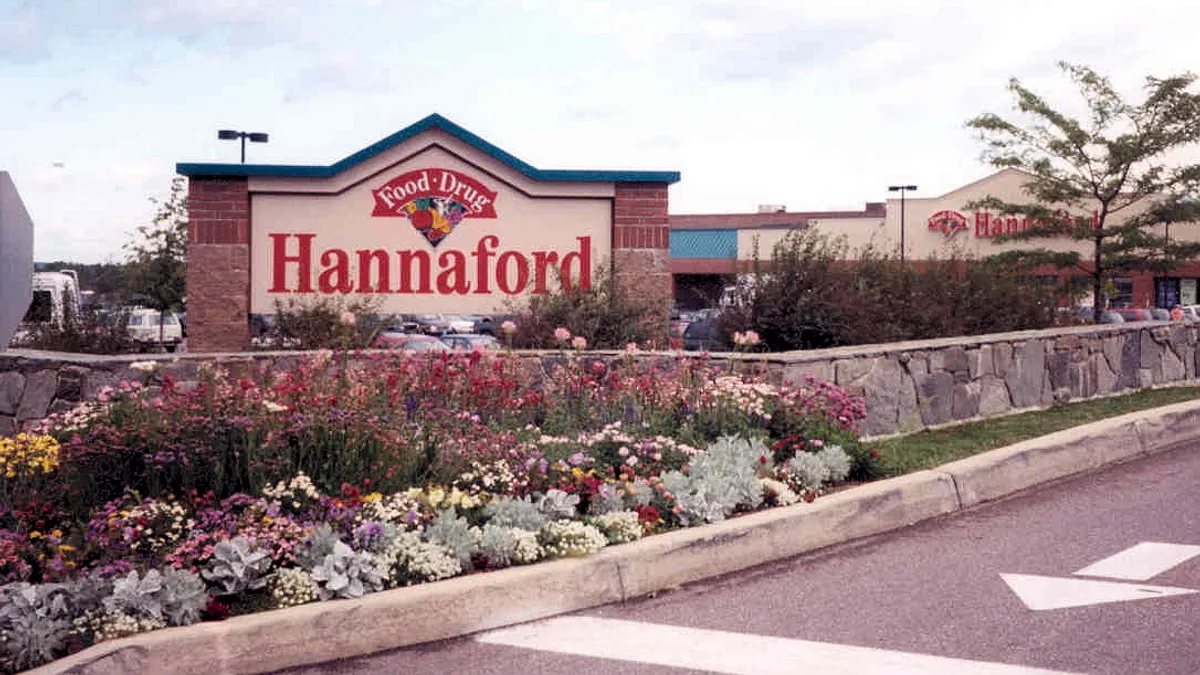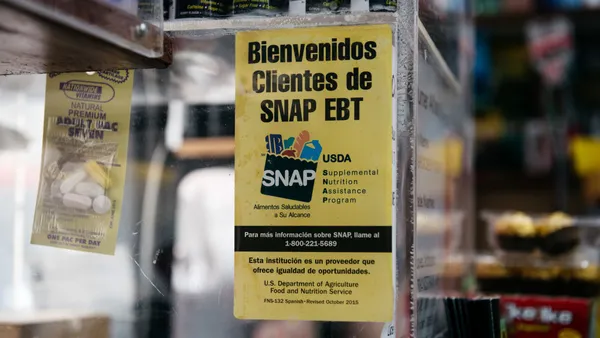Dive Brief:
- Ahold Delhaize has published its first ever human rights report, according to a company press release. The report is intended to showcase the steps the company is taking to safeguard human rights and increase transparency across its organization.
- In the report, Ahold Delhaize identifies six issues it plans to work on initially, which will affect its operations both internally and externally and help shape its company policies.
- CEO Franz Muller noted in a statement that between COVID-19 and racial injustice, 2020 has been an unprecedented year, and said the company has to play a role in dismantling structures with systemic issues.
Dive Insight:
Grocery stores have been at the epicenter of much of the tumult of 2020, from the pandemic to protests following the death of George Floyd.
With its report on human rights, Ahold Delhaize is showing its efforts on a global scale to address issues such as health and safety, women’s rights, forced labor and compensation. The company based its report on a due diligence process it began in 2018, which aimed to increase the retailer’s engagement on human rights.
To help address the issues identified in the report, Ahold Delhaize has published a code of ethics for its associates to follow and standards for all suppliers it works with. Each of these documents sets forth specific expectations for those working for the company or doing business with it.
A roadmap for human rights is a way for the company to hold itself accountable to stakeholders, customers and investors. Ahold Delhaize said it wants to make sure human rights are embedded in its strategy and are an integral part of its brands and business, and will continue to share its progress on these issues in its annual reports.
Few retailers have come out with a comprehensive report like this one, but several are speaking out to show their commitments to ending systemic racism. Walmart and the Walmart Foundation are spending $100 million to create a center on racial equity. Albertsons has pledged $5 million to social justice groups, while H-E-B has launched a $1 million fund to address racial issues. Hy-Vee, Giant Eagle, Smart & Final and others have also made similar moves.
Consumers want grocers to get more involved. A recent campaign called the 15 Percent Pledge calls on major retailers like Target and Whole Foods to dedicate 15% of shelf space to black-owned businesses.













